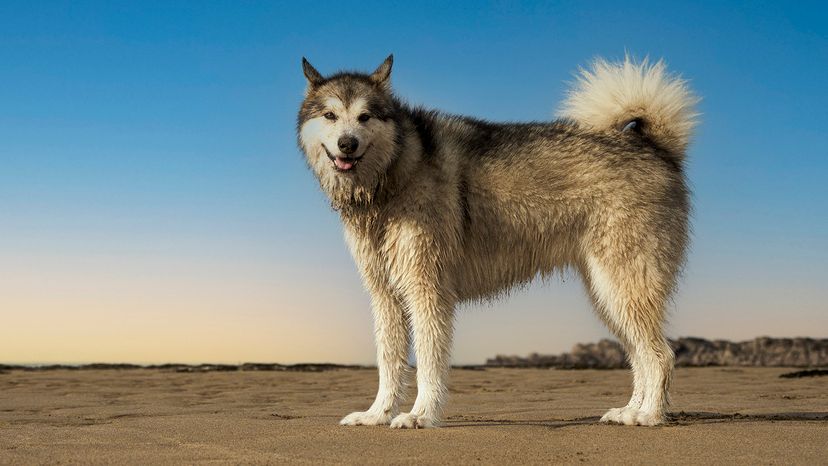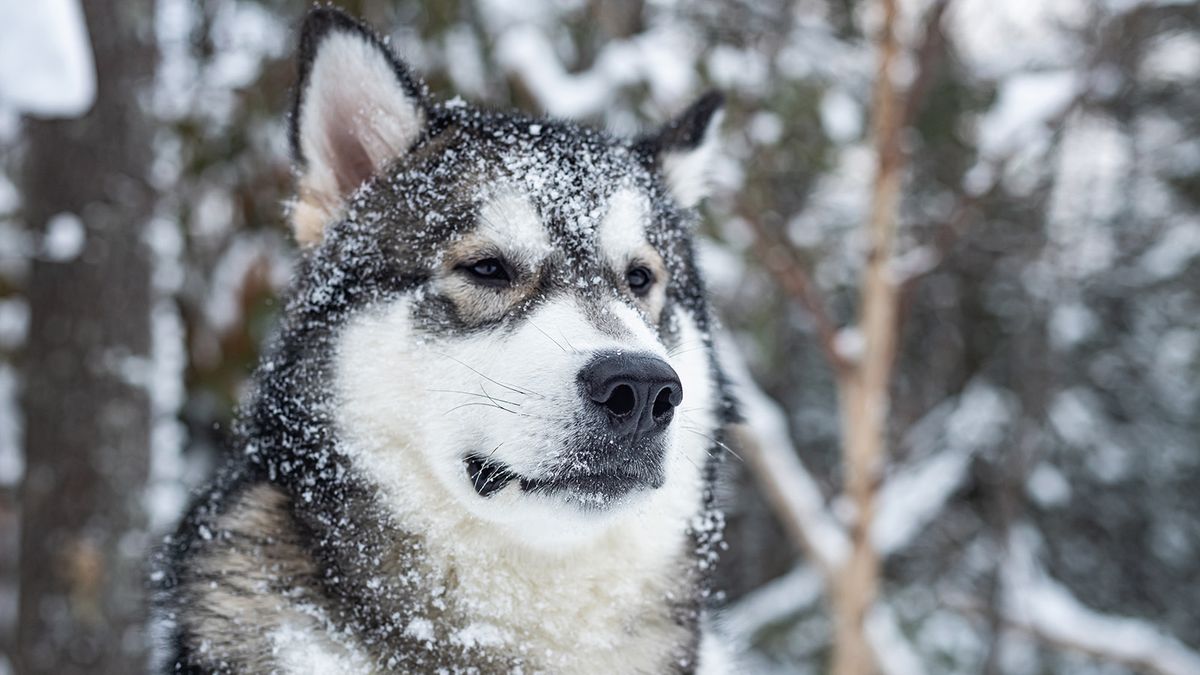
Like all dog breeds, Malamutes are prone to certain health conditions, including hip dysplasia, eye problems such as day blindness and the genetic disorder primary ciliary dyskinesia, which affects the respiratory tract and nervous system.
In addition to hip dysplasia and primary ciliary dyskinesia, they may also suffer from:
- Hypothyroidism: a condition that can lead to weight gain, lethargy and coat issues
- Chondrodysplasia: also known as dwarfism, a genetic disorder affecting bone development
- Inherited polyneuropathy: a condition affecting the peripheral nerves, leading to weakness and coordination issues
- Bloat (gastric torsion): a serious, sometimes fatal condition where the stomach twists, requiring emergency care
Early screenings and genetic testing through a responsible breeder can help minimize the risk of passing on these conditions. Regular vet visits are vital for early detection and management.
For diet, choose high-quality dog food — whether commercially manufactured or vet-approved human foods in moderation — to support the dog’s age, energy levels and health status.











